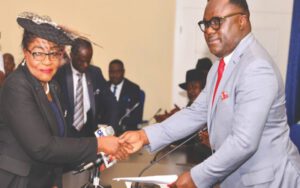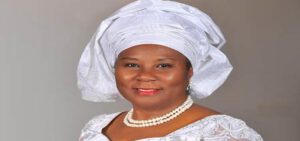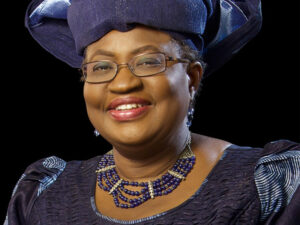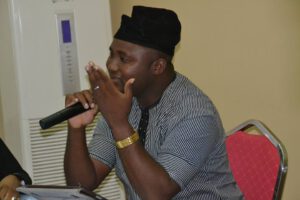By Gabriel Atumeyi
After several rejections, the Cross Rivers State House of Assembly recently confirmed Justice Akon Ikpeme as substantive Chief Judge of the state. Before she eventually sailed through, her nomination was twice rejected. And to deepen her agony, while the ding-dong lasted, two of Justice Ikpeme’s junior colleagues served as acting Chief Judges – albeit in acting capacity.
Her crime? She was not an indigene of Cross River state. And not even the fact that she was born, raised, married to an indigene and spent all her working years in service of the state could dissuade her traducers.
It did not matter that her recommendation for the position was backed by the National Judicial Council (NJC); what, perhaps, mattered most to the state Assembly – and upon which her rejection was predicated – was the consideration that she has ancestral roots in neighbouring Akwa Ibom state, by birth.
Though Justice Ikpeme got to occupy the seat which she so richly deserved, her case, once again, raises fresh posers regarding the status of married women in public service.

*Ikpeme in a handshake with Gov. Ben Ayade of Cross River State
For years on end, Nigerian women have found their career progression hamstrung by their marital status. In deed, the Nigerian system appears to have put them in a dilemma, whereupon they are often rejected from representing their home states, on the excuse of having marrying a non-indigene and conversely also unaccepted by their state of marriage for not being indigenes by birth.
Though an attempt was made by the 8th National Assembly to amend the law and make it more flexible in favour of women, allowing them
choose where they want to represent, the proposed amendment failed to scale through.
Scaling through the odds
Despite this opposition, some women have continued to aspire and succeed in individual bids to serve from whichever state they chose to.
Josephine Anenih, estranged wife of late Chief Tony Anenih, also known as “Mr Fix It”, was appointed Minister of Women Affairs by ex-President Goodluck Jonathan to fill the slot of her state of birth, Anambra.

*Anenih
Many years earlier, her husband had represented Edo state as Minister of Works.
Incoming Director General of the World Trade Organisation (WTO), and former two-time Minister of Finance, Ngozi Okonjo-Iweala was minister under ex-Presidents Olusegun Obasanjo and Jonathan. While she is originally from Delta state, her husband is, however, from Abia State, which she represented in the federal cabinet.

*Okonjo-Iweala
But unlike Ngozi Okonjo-Iweala, controversial former Minister of Petroleum Resources, Diezani Allison-Madueke, who is from Bayelsa State but married to former Chief of Naval Staff, Allison Madueke, from Enugu State, represented Bayelsa state at the federal cabinet.

*Alison-Madueke
Another prominent case is that of former Aviation Minister, Stella Oduah, who was married to Engineer Chris Ogiemwonyi, a former Minister of State for Works under late President Umar Yar’Adua’s administration is from Edo State. She was appointed by Jonathan to represent Anambra, her state of origin.

*Stella Oduah
What the law says
During the Constitutional Amendment process by the 8th National Assembly, between July and August 2017, the issue was presented as a bill on “Citizenship and Indigeneship.” It was intended to give married women the right to choose where they want to claim as their state of origin, for the purpose of election or political appointment. Ironically, the attempt failed, as both the Senate and the House of Representatives voted against it.
Speaking to 365Daily, former Attorney General of Nassarawa State, Innocent Lagi, said women deserve the right to live and serve in any state of the federation as citizens, guaranteed by the Constitution – and so any attempt to pass a law making women choose between their parents’ state and that of their husbands, either for appointment or elective purposes, would be tantamount to creating an issue where there is none.

*Lagi
He said: “If you look at this particular case (Ikpeme), for example, the moment she became qualified to be a High Court Judge in Cross Rivers State, there was no limit as to how high she could rise.
“There is no basis for discrimination under our constitution based on statehood. So, there is even nothing to discuss the amendment of the Constitution about. When Justice Ikpeme became a High Court Judge, the fact that she is the administrative head of that court did not change anything. Her salary did not go up. So, it is more of the federal and state government’s inaction to foster unity among the people of this country. That is not even a matter that should be discussed.
“We created an avenue for that to be discussed that is why it became an issue. When she was appointed, it wasn’t an issue. Nobody told us she was from Akwa Ibom.
“Why does the so-called amendment have to be for women? The Governor of Nasarawa state is a non-indigene for example. The Governor of Kano state is not an indigene of Kano. The list goes on. It is just discrimination. Our Constitution also does not allow us to discriminate against anybody on the basis of their sex or their gender. So, it is just unconstitutionality given national discourse.”
Also speaking to 365Daily, Public Commentator and Rights activist, Aristotle Ariyo, said that the Constitution is the overriding norm and women, whether married or not, should be allowed to rise if they have the competence. Marriage, Ariyo contended, should rather confer the advantage of double indigeneship on them.

*Ariyo
His words: “The ground norm remains the 1999 Constitution of the Federal Republic of Nigeria and it is the overriding law. The constitution recognizes women in contention as citizens.
“What is going on, that the woman is married to a man from another state or the man is married to a woman from another state? The controversy does not in any way override the Constitution. As far as you are serving in a particular state (married or not) and qualified, nothing should stop one’s career growth.
“I think it is time for the National Assembly to intervene. Let us define this thing clearly. It is defined, but since it has become a recurring decimal, we need to revisit it again so that it is a settled matter, that a woman who is married to a man from another state also has all rights that the husband enjoys and being a citizen of Nigeria, can rise to any level in the state of her husband and that is the benefit we must allow women to enjoy. Both her state of origin and her husband’s state of origin, the woman is entitled to both.
“It is a benefit we must accord them and this doesn’t happen all the time. We should know that the woman reserves the right to enjoy double benefit. Enjoying double benefit is not illegal, it is not unconstitutional,’’ Ariyo said.
Some other observers are of the view, however, that until such definitive pronouncement is made, via a Constitutional pronouncement, more and more women are bound to continue carrying such lingering baggage.